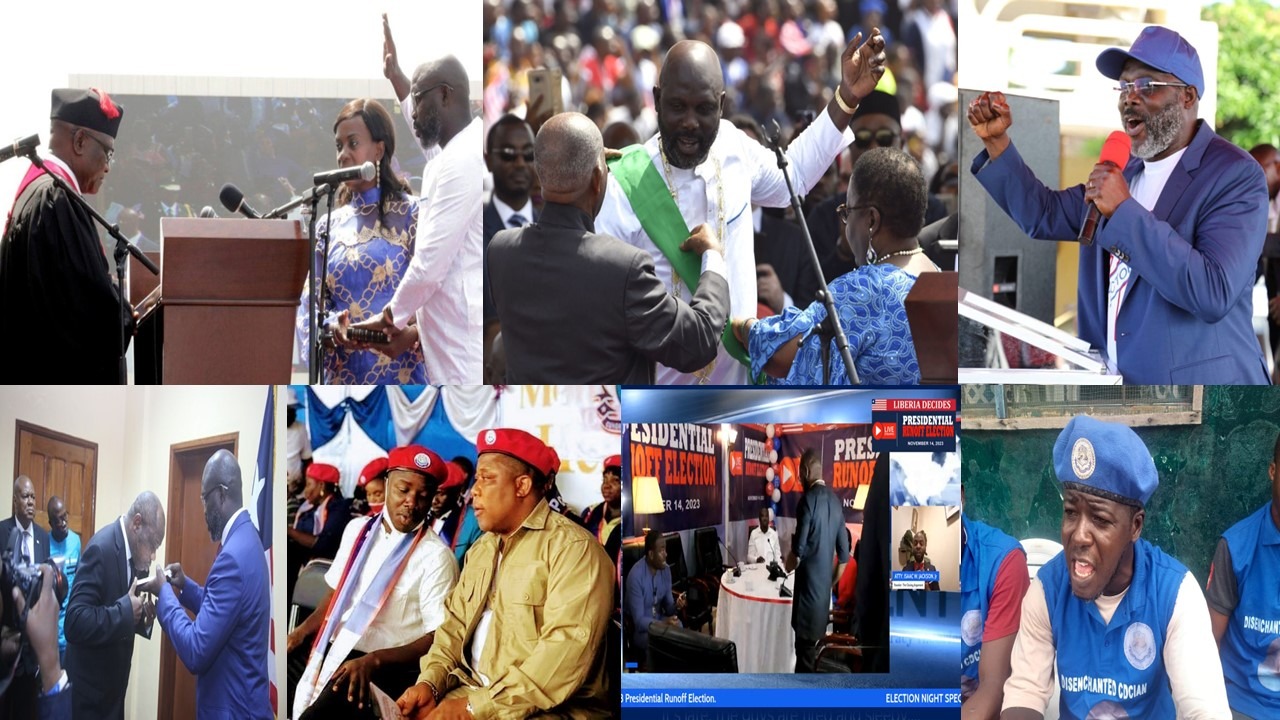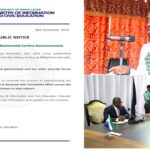The political landscape of Liberia witnessed a seismic shift in 2023 as the nation grappled with the aftermath of the presidential election that marked the end of President George Weah’s tenure. The anticipation surrounding Weah’s successor was a defining factor that ultimately contributed to the defeat of the ruling party, the Coalition for Democratic Change (CDC). This defeat was not solely the result of conventional political dynamics; instead, it was driven by a complex interplay of factors including a silent coup in leadership, money interests, deceptive polling numbers, a fabricated war room, and growing disenchantment among CDCians.
- Silent Coup in Leadership
One of the pivotal elements that led to the CDC’s downfall was the internal power struggle and the covert reshuffling of leadership within the party. The fight over who would succeed President George Weah in 2029 created deep rifts and internal tensions that weakened the party’s unity. The absence of a clear and unified vision for the future, coupled with infighting among CDC leaders, eroded the party’s credibility in the eyes of the electorate. This internal discord allowed opposition forces to exploit the perceived vulnerability within the CDC and present a united front against the ruling party.
- Money Interests and Deceptive Polling Numbers
The political landscape is often shaped by financial interests, and the 2023 election in Liberia was no exception. The influence of money in politics played a significant role in shaping the electoral narrative. Reports emerged of questionable financial dealings within the CDC, with allegations of corruption and misuse of public funds tarnishing the party’s image. Additionally, the party’s reliance on voodoo polling numbers and deceptive tactics to manipulate public perception contributed to the erosion of trust in the CDC’s leadership. As voters became increasingly skeptical of the party’s integrity, they turned to alternative candidates who promised transparency and a break from the alleged financial mismanagement of the ruling party.
- Fabricated War Room and Disenchantment Among CDCians
The CDC’s campaign strategy included the establishment of a purported “war room” to strategize and counter opposition moves. However, investigations later revealed that this war room was largely a facade, with inflated claims of its capabilities and influence. The revelation of this deception further fueled disillusionment among CDC supporters, who felt betrayed by their own party. The disenchantment among CDCians stemmed from the realization that the party’s leadership had misled them, undermining the trust that is crucial for any political movement.
Conclusion
The defeat of the CDC in the 2023 Presidential election can be attributed to a multifaceted combination of factors. The internal power struggle, financial improprieties, deceptive tactics, and a fabricated war room all played crucial roles in undermining the party’s standing. As Liberia transitions to a new political era, the lessons learned from the CDC’s defeat underscore the importance of transparency, unity, and genuine leadership in sustaining a political movement. The 2023 election serves as a stark reminder that political success is not solely determined by external forces but is also shaped by the integrity and cohesion of the party itself.




